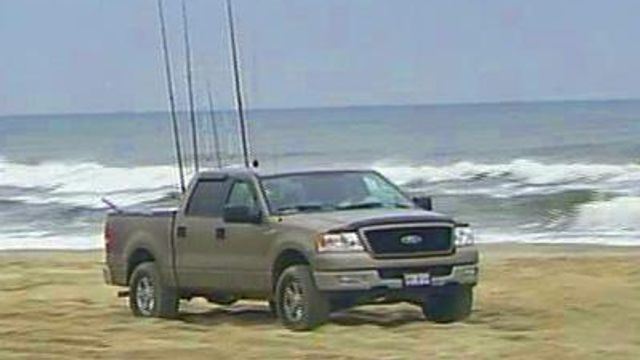Judge drives beach-access lawsuit away from ban
Both sides indicated that they are willing to reach a settlement in a lawsuit over whether environmental concerns should end driving on some Outer Banks beaches.
Posted — UpdatedU.S. District Judge Terrence Boyle could have issued an injunction that would have banned beach driving until the settlement was finalized. Instead, he continued the case until next Friday, when he will hear the settlement, formally known as a consent decree.
Neither officials with the National Park Service or two environmental groups would release details of the settlement.
A representative for the National Audubon Society – which jointly filed the lawsuit with Defenders of Wildlife in October – said it would impose more restrictions but would be fair.
"We're not about eliminating driving on the beach. We are, in fact, about finding a very good balance," Chris Canfield, with the Audobon Society, said.
Boyle granted requests from the attorneys for Dare and Hyde counties to attend the consent decree hearing. But some locals expressed skepticism that the settlement will reflect the voices of the communities that it affects economically and culturally.
"I don't think it'll be much relief," Frank Folb, owner of a bait shop in Avon, said. "I think it'll put a bigger burden than what we have. It's very hard to live with what limitations they have already in place."
Supporters of beach driving demonstrated across the islands Friday. They held two protests in March, including one that drew 1,500 people, according to media reports.
Attorneys argued that the park service's interim plan provided inadequate protection to nesting piping clovers and sea turtles along North Carolina's federally protected coastline, including Cape Hatteras National Seashore and Bodie and Ocracoke islands.
The park service had formed the plan after Boyle ruled in July 2007 that the lack of a long-term management plan technically made beach driving illegal.
"It was too much in favor of the recreational access, and the last season that was under that interim plan showed dramatic declines in birds' nesting there," said.
Supporters, though, argued that a ban or major restrictions on beach driving could severely damage the area's economy, which is heavily dependent on tourism.
"It probably would have prompted a cascade that would have resulted in an economic disaster for the local economy in Dare County," Raymond Sturza, mayor of Kill Devil Hills, said.
Driving on beaches along the Outer Banks has been popular for decades, and the number of vehicles sometimes tops more than 2,000 a day.
"I'd probably make it a year, and I'd be out of business," Folb said about his bait shop.
Supporters also argued that that beach driving reflects an earlier way of life on the Outer Banks, which should not be erased.
"My dad was the first man to drive to Cape Point," Folb said.
• Credits
Copyright 2024 by WRAL.com and the Associated Press. All rights reserved. This material may not be published, broadcast, rewritten or redistributed.





